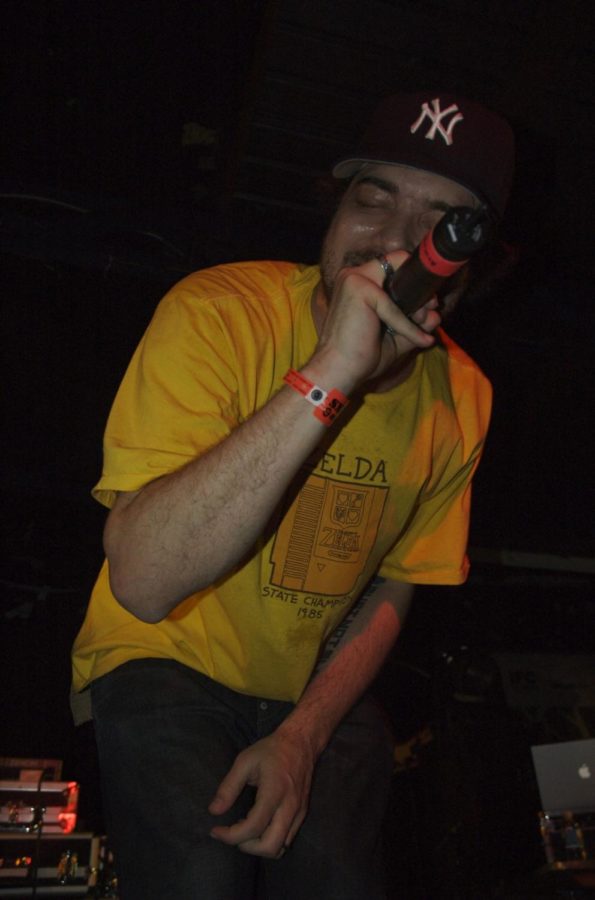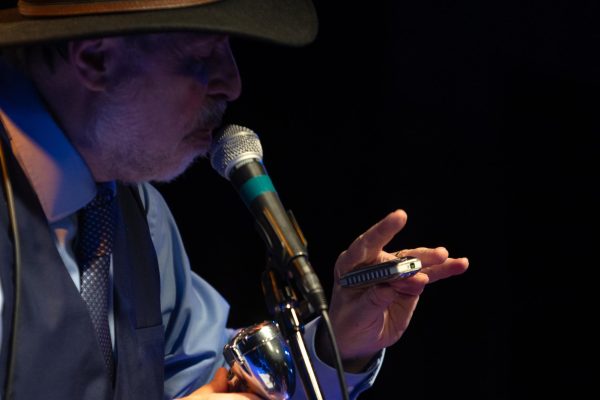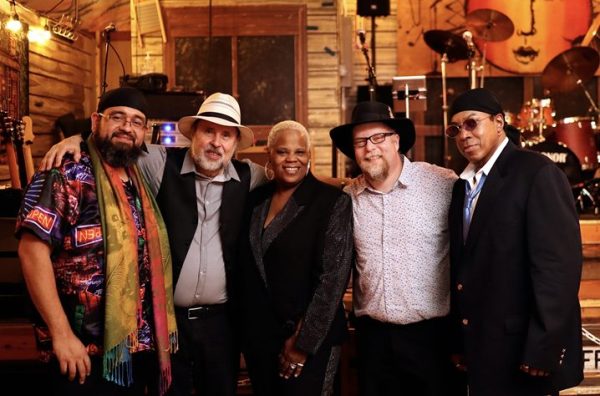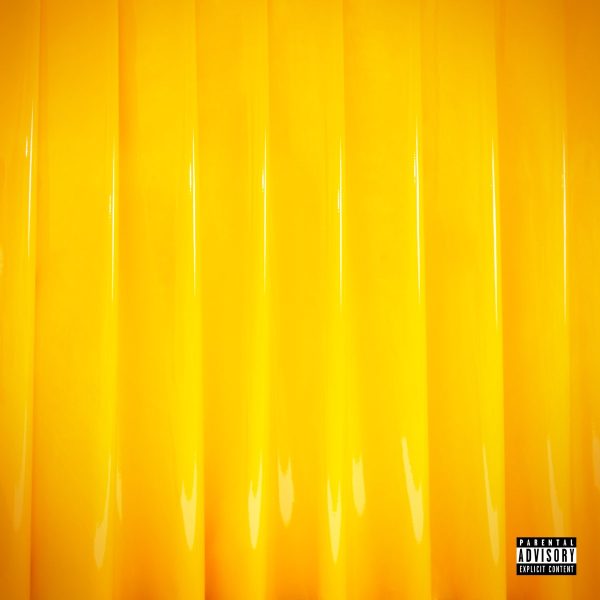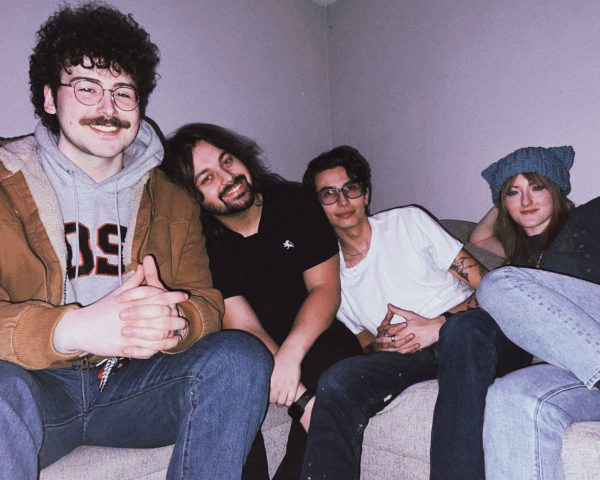Aesop Rock challenges himself with “Malibu Ken”
According to an interview with MVRemix, Ian Matthias Bavitz got the name “Aesop” from a film he acted in with his friends. The “Rock” came later “just from throwing it in rhymes.”
January 22, 2019
Even though you may not have heard of him, Aesop Rock earned legend status long before the release of this year’s collaborative project “Malibu Ken.”
Aesop Rock teams with electronic musician Tobacco to form the duo Malibu Ken. Their self-titled debut is the first great album of 2019.
Aesop Rock, a 22-year hip-hop veteran, holds the largest vocabulary in the genre’s history. His music is synonymous with abstract lyricism, complex wordplay, fascinating flows and immersive storytelling. Aesop Rock’s music takes time to digest, and taking many attentive listens to each track is necessary for maximum enjoyment.
Tobacco fronts experimental psychedelic rock band Black Moth Super Rainbow and his appearance alongside Aesop Rock as Malibu Ken, although seemingly unlikely, makes perfect sense in practice. Tobacco’s psychedelic and electronic heavy production fits Aesop Rock’s well-established signatures.
Aesop Rock isn’t doing anything much different on his end. He takes a less-cryptic, more personal and story-driven approach to lyricism and themes in comparison to his earlier work, similarly to how he did on his last album “The Impossible Kid.”
Aesop Rock maintains his twisted humor, strange topics and unique worldview, but this time his eccentric personality is highlighted by more eccentric production that takes a bigger part of the stage than usual on “Malibu Ken.”
On his self-produced “The Impossible Kid,” Aesop Rock opted for grimy samples, rigid guitar grooves and dark synths in his own low-key production. Tobacco’s production on “Malibu Ken” takes Aesop Rock on a more playful route, painting familiar Aesop Rock personality traits in a new light. He seems much more at home with himself on “Malibu Ken,” accepting his personality rather than battling it.
The opening track “Corn Maze” introduces Aesop Rock as the private and guarded individual many fans already know him as. He repeats the phrase “I got some walls up,” which may be an answer to why he’s known for such abstract and cryptic songwriting. On this particular track he seems to have more pride and lighthearted feelings towards his own isolated behaviors.
“In a lavish rabbit hole with no rabbits/Young, dumb dust-bunnies jump into traffic/Casually gussied up and done feeling unsung and savage/Punk, we have come for your cabbage/I’m bad news, travel like a rat through your cabinet/Spaz, twenty paw-pads full of scabs.”
Here Aesop Rock feels alone in his “rabbit hole” as he watches others, the “bunnies”, plunge into chaos while he views things from the outside. He could be talking about other rappers, as he talks about coming for their “cabbage” as he maintains relevancy throughout his long music career, “twenty paw-pads full of scabs.” He doesn’t feel threatened by the “bunnies” who get all the fame but nonetheless, “jump into traffic” while he goes undervalued but remembered.
This track is followed by one of the most fun and humorous cuts, “Tuesday”, where Aesop Rock details the sorry state of his physical well-being and lifestyle. From him being unfazed by a mushroom growing in his car to describing his home as a simulation of living in a van, Aesop Rock does this in an unapologetic tone, implying that he isn’t attempting to change his ways.
This is a new step in Aesop Rock’s mental state, as chronicled by previous work. Now he has accepted this part of himself and expresses comfort in that state as way to deal with more complicated issues. “Maybe one day, he’ll go deeper/Really exorcise the demon at the root.”
On the more narrative song, “Acid King,” Aesop Rock tells the true story of Ricky Kasso, a teenager who went to the same high school as Aesop Rock and murdered his friend under the influence of psychedelic drugs in 1984. The year is important, as Aesop Rock makes countless ’80s culture references that serve to build a relation between Aesop Rock and Kasso in the things they both enjoyed.
The beat is reminiscent of tension-building synth soundtracks of ’80s films. Aesop Rock is interested in the true motivations behind Kasso’s murderous act, as the media in the 1980’s portrayed the murder as occult or a product of listening to heavy metal music.
Even with the impressive density of Aesop Rock’s lyricism, one of his best abilities is to craft a lyrical and catchy hook that doesn’t cut corners. On “Acid King,” the outro serves as a hook of sorts and paints a grim picture of the reality of Kasso’s actions, suggesting he was influenced by factors beyond his depth.
“It’s starting to feel like a nice night/Hold close to the highs and the white light/Hold close to the good you are drawn to/These woods were grown to disarm you.”
The less straightforward, less narrative tracks on “Malibu Ken” offer a world of lyrical content to explore. However, Aesop Rock can craft a verse with a flow as rhythmically satisfying as any hook in hip-hop, making the listening experience without lyrical focus still highly enjoyable.
At 10 tracks and 34 minutes, “Malibu Ken” is one of Aesop Rock’s more digestible works and may be the most accessible starting point to his discography. Even as what appears to be branded as a quirky side project for Aesop Rock, “Malibu Ken” holds as much significance as any album from the rapper in terms of artistic evolution and personal growth.
Fans will appreciate Aesop Rock challenging himself with a new production style, new revelations and tonal shift on his personality. New listeners may be drawn to the project at first exposure by one of the most creative and talented lyricists to ever live.
Aesop Rock, Tobacco – “Malibu Ken”
Verdict: 8/10

